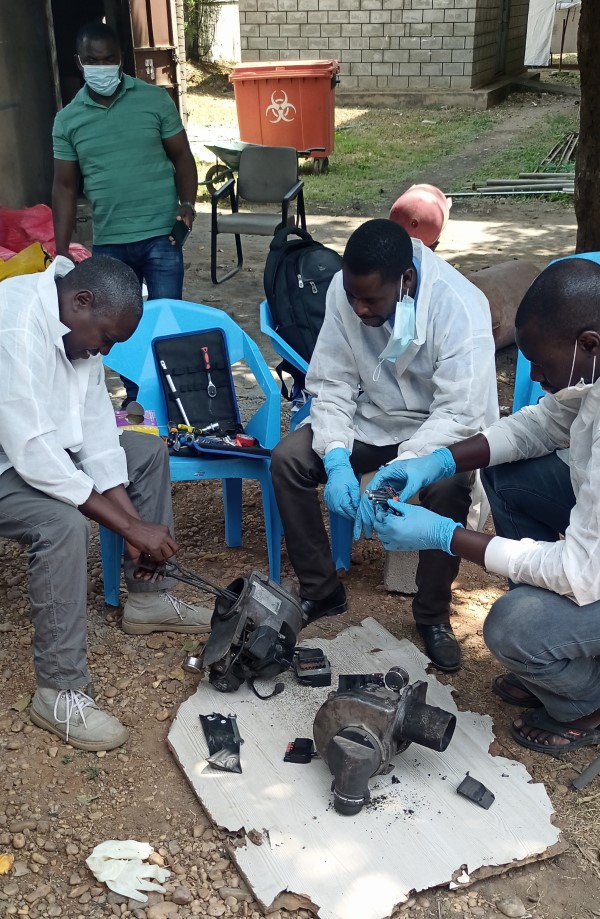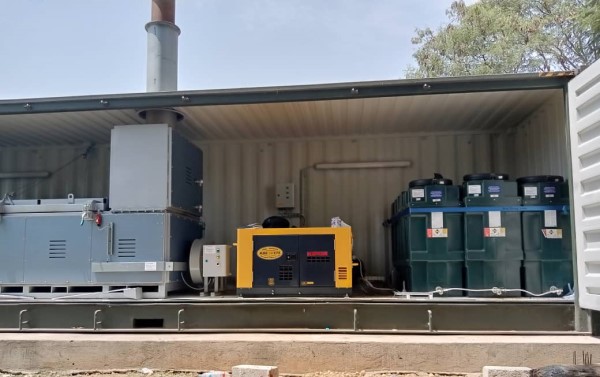Diagnostic testing produces potentially hazardous biological and chemical wastes, of which improper management poses significant safety risks to staff, the public, and the environment. Therefore, a structured and effective waste management system at national and sub-national levels is necessary, including developing and consistently using comprehensive waste management guiding policies and procedures and the availability of waste management facilities and trained staff.

Engineers repairing the motor of the old incinerator
The LabCoP Management team observed a waste management challenge in South Sudan during a visit in Sept 2021. Wastes requiring incineration; infectious and chemical wastes (including guanidinium thiocyanate (GTC)), were not incinerated by the central and peripheral laboratories, resulting in stockpiling of hazardous wastes.
Further discussion with the team revealed specific challenges, including the breakdown of the old incinerator, incomplete installation and commissioning of a new high capacity incinerator at the National Public Health Laboratory, and the absence of a structured system for moving wastes from the lower to the central laboratory for incineration.
The LabCoP Management team consulted other LabCoP country teams and identified a Zambian healthcare waste management team from within the Ministry of Health with incinerator installation, maintenance, repair, and modification expertise.

A section of the fully installed and commissioned high-capacity incinerator
With support from ASLM, the Zambian team visited South Sudan, provided technical assistance, and restored the country’s central laboratory’s incineration capacity. Specifically, the Zambian team: shared customisable standard operating procedures, guidelines, and job aids for the operation and maintenance of incinerators with the South Sudan team; assessed, completed the installation of and commissioned the new incinerator; repaired the faulty motor of the old incinerator; trained one site engineer and five other waste handlers in the proper operation and maintenance of the incinerator; and conducted a general waste management training session for the waste management technical working group.
